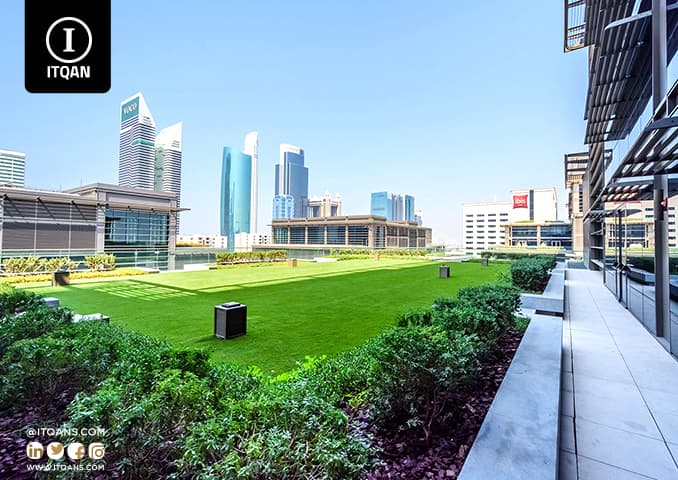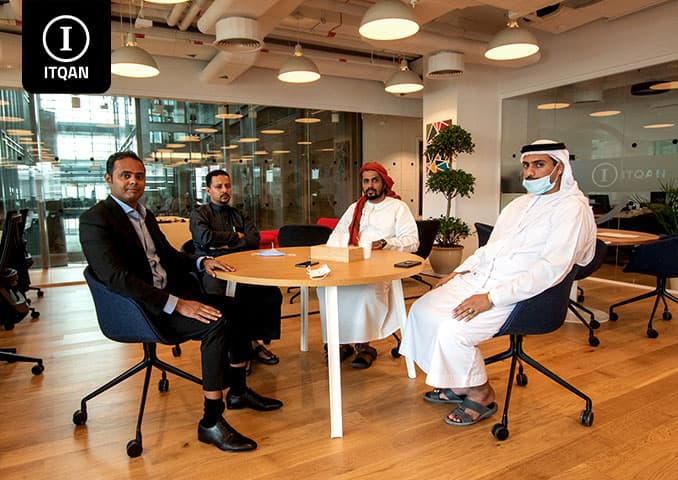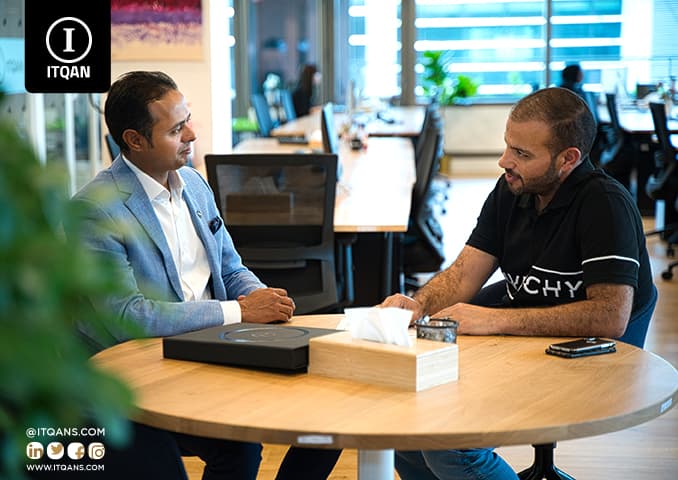Dubai is one of the most prominent global business destinations, attracting many investors from all over the world, including Saudis, due to the diverse business opportunities it offers and the advanced investment environment. Opening a commercial register in Dubai is an important strategic step for many Saudi companies looking to expand in the Middle East market. Thanks to its distinguished geographical location, modern infrastructure, and flexible regulations, Dubai provides an ideal platform for growth and expansion.
Opening a commercial register in Dubai for Saudi expatriates has several advantages that encourage investment, including the facilities provided by free zones that allow full ownership for foreigners without the need for a local partner, in addition to tax exemptions and other commercial privileges. In contrast, if a Saudi investor decides to open a commercial register on the mainland, he will need a local partner, but he will have wider access to the local market.
The process of opening a commercial register in Dubai begins with determining the type of business activity, choosing the appropriate legal structure, and submitting the required documents to obtain a commercial license. It also requires familiarization with local laws and regulatory procedures related to the type of business activity. These procedures include submitting applications for a license, preparing documents such as a lease contract, identity documents, and a business plan, and submitting them to the relevant authorities.
In this article, we will review in detail the basic steps for opening a commercial register in Dubai for Saudis, and discuss the advantages and challenges that Saudi investors may face, in addition to important tips to ensure the success of the establishment process.

جدول المحتوى
ToggleFor Saudis wishing to open a commercial register in Dubai, the following steps can be followed:
Obtaining a prior permit: Saudis wishing to open a commercial register in Dubai must obtain a prior permit from the relevant authorities in the emirate.
Choosing the business activity: Before establishing the company, you must determine the type of business activity you wish to practice and ensure that it complies with local laws and regulations.
Choosing the legal form: You must choose the appropriate legal form for the company, such as a sole proprietorship, a limited liability company, or a joint stock company, according to the activity and needs.
Choosing the company name: You must choose a unique and appropriate name for the company and ensure that it does not conflict with the names of other existing companies.
Determining the company location: You must determine the location of the company’s headquarters in Dubai and ensure that it complies with the legal requirements.
Applying for a license: After completing the previous steps, an application for a commercial license in Dubai must be submitted to the relevant authorities.
Completion of legal and administrative procedures: After obtaining the license, the necessary legal and administrative procedures must be completed, such as opening a bank account and registering with tax authorities if necessary.
Compliance with local legislation: Saudi companies must comply with local legislation and regulations in Dubai and the UAE.
Legal advice: It is useful to obtain local legal advice to ensure compliance with all laws and regulations related to opening a commercial register in Dubai.
Documents required to open a commercial register in Dubai
Opening a commercial register in Dubai requires submitting a set of basic documents to ensure compliance with registration requirements and obtaining the necessary licenses. Documents vary slightly depending on the type of business activity and location (mainland or free zone). Below is a list of generally required documents:
Passport: A copy of the passport of the owners or main partners of the company. The passport must be valid and contain at least two blank pages.
Emirates ID: For residents of the UAE, a copy of the Emirates ID must be submitted. If the owner or investor is a non-resident, they may need to submit alternative documents as proof of identity.
Lease Contract: The lease contract for the office or premises from which you will operate your business. The contract must be registered and certified by the relevant authorities in Dubai.
Certificate of Incorporation: The certificate of incorporation or the memorandum of association, which includes details about the structure and objectives of the company. It must be certified by the legal authorities.
Memorandum of Understanding (MOU): A memorandum of understanding between the partners detailing the shares and obligations of each partner. This document helps clarify the understandings between the parties involved.
Business Plan: A comprehensive business plan that includes the type of activity, the target market, and the financial strategy. This document may be required to clarify the nature of the project and its objectives.
Additional Permits: In some cases, you may need special permits or approvals from the relevant government agencies or regulatory bodies depending on the type of activity.
No Objection Certificate: A No Objection Certificate may be required from the local partner (if the activity is in the mainland) or from the relevant authorities (if the activity is in a free zone).
Company Registration Documents: If the company is a group or includes partnerships, you may need to provide documents proving the registration of other relevant entities.
Legal Authorizations: If there are agents or legal advisors acting on behalf of the company, you will need to provide them with official legal authorizations.
Fees for Opening a Commercial Register in Dubai
When opening a commercial register in Dubai, investors are required to pay a range of fees that vary based on the type of business and location. Although the figures may vary, the general categories of fees include:
Registration Fees: These include the fees for submitting the company registration application and obtaining the commercial register. These fees are determined based on the type of business and the size of the company.
Commercial License Fees: The cost of obtaining a commercial license that grants the company the right to practice the specified activity. Fees vary depending on the type of activity and geographical location.
Lease Contract Fees: The cost of registering a lease contract for an office or commercial site. Fees may also include the costs of securing or registering the contract with local authorities.
Legal Services Fees: You may be required to pay fees to legal advisors or consulting firms to assist you in preparing documents and submitting applications.
Special License Fees: In some cases, you may need to pay additional fees to obtain special permits or licenses based on the nature of the business.
Certification and Notarization Fees: The costs of obtaining the necessary certificates and notarizing the documents required to establish the company.
Bank Account Opening Fees: Fees associated with opening a commercial bank account, which may include the costs of opening the account and issuing checkbooks.
Visa Fees: If you need to issue work visas for employees, you will need to pay fees to obtain the necessary visas and permits.
In conclusion of our article on opening a commercial register in Dubai for Saudis, we can confirm that Dubai is an ideal destination for Saudi investors who want to expand their businesses beyond national borders. The city offers a dynamic, technological and thriving business environment, with a variety of opportunities across various economic sectors. Providing investment facilities, tax breaks and advanced infrastructure enhances its attractiveness as a major business destination.
Establishing a commercial registry in Dubai allows Saudi investors to enter a market with huge potential, and benefit from a business environment that supports innovation and growth. By exploring the available options, such as the mainland or free zones, investors can choose the model that best suits their business activity. Each of these options offers certain advantages, from full foreign ownership in free zones to the possibility of expanding into the local market through the mainland.
It is important to handle the legal and administrative procedures thoughtfully, by preparing the required documents and submitting registration applications in the correct manner. Working with local advisors can facilitate the process and provide expert advice on how to comply with local legal requirements.
Ultimately, Saudi investment in Dubai is not just a business opportunity, but a strategic step towards strengthening businesses and reaching new markets. By adhering to the correct establishment standards and understanding the business environment, Saudi investors can achieve success and growth in this advanced market. Dubai always remains a beacon of business and a golden opportunity for investment, where opportunities meet innovation and potential.
Top Frequently Asked Questions About Opening a Commercial Register in Dubai for Saudis
Can Saudis open a company in Dubai without a local partner?
Yes, Saudis can open a company in Dubai without a local partner if the company is established in one of the free zones, where foreign owners can own 100% of the company’s shares. However, if the company is to be established outside the free zones, there must be a local partner who owns 51% of the shares.
What types of companies can be established in Dubai?
The types of companies available in Dubai include limited liability companies (LLC), public joint stock companies, sole proprietorships, branches of foreign companies, and representative offices.
How long does it take to get a commercial register in Dubai?
It usually takes one to several weeks to get a commercial register in Dubai, depending on the speed of preparing the necessary documents and legal procedures.
Are there any special requirements for Saudi investors in Dubai?
In general, there are no special requirements for Saudi investors that differ from others. The same procedures must be followed and the same documents must be submitted as required by the local authorities.
What are the benefits that a Saudi investor can get when opening a company in Dubai?
The benefits include full foreign ownership in free zones, tax exemptions, a stable business environment, modern infrastructure, and easy access to regional and international markets.

















